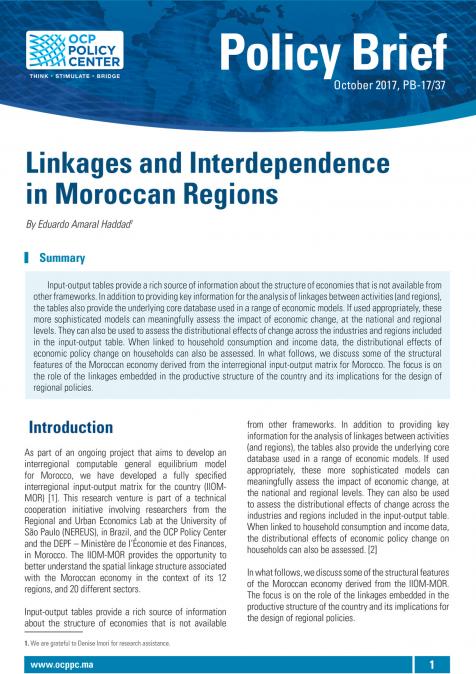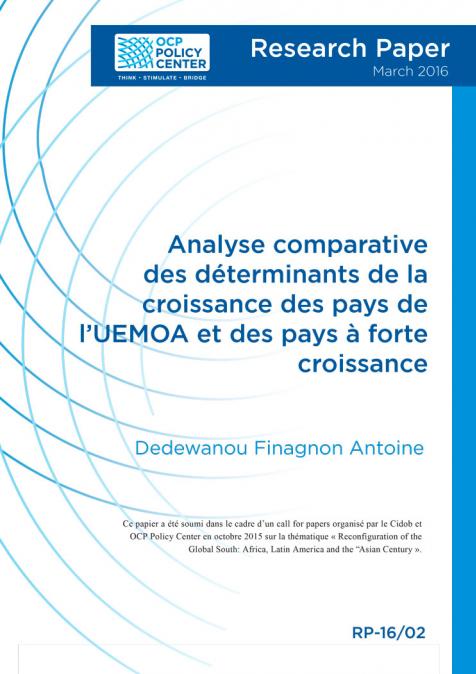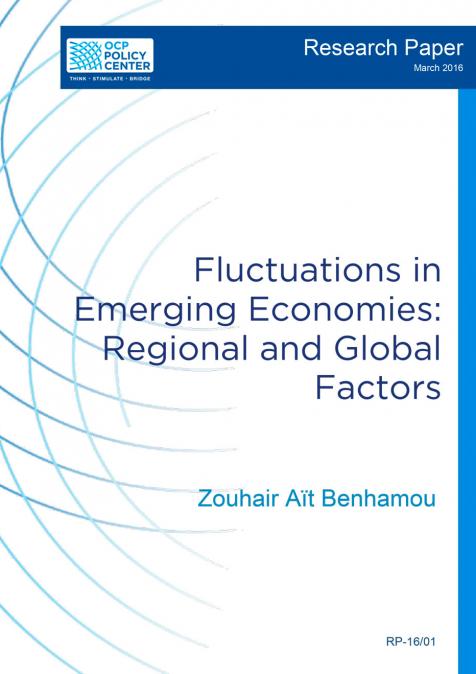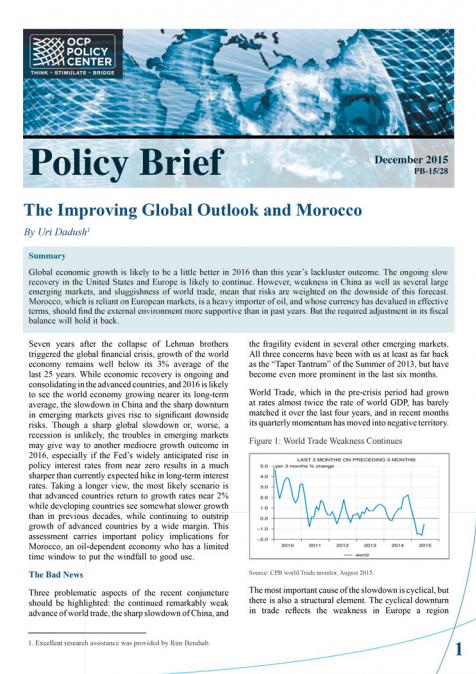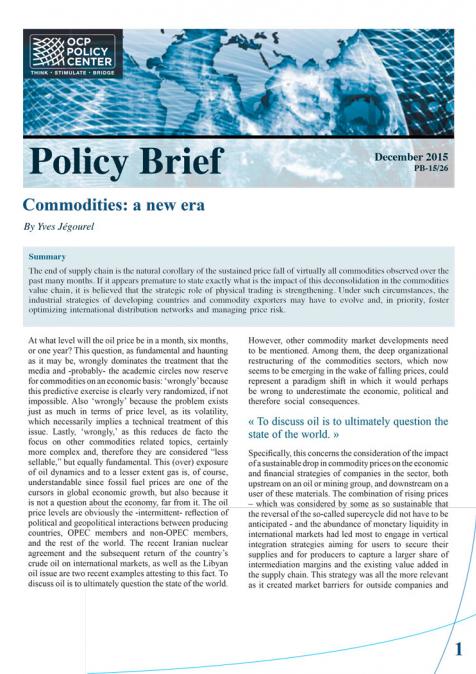Publications /
Policy Brief
Input-output tables provide a rich source of information about the structure of economies that is not available from other frameworks. In addition to providing key information for the analysis of linkages between activities (and regions), the tables also provide the underlying core database used in a range of economic models. If used appropriately, these more sophisticated models can meaningfully assess the impact of economic change, at the national and regional levels. They can also be used to assess the distributional effects of change across the industries and regions included in the input-output table. When linked to household consumption and income data, the distributional effects of economic policy change on households can also be assessed. In what follows, we discuss some of the structural features of the Moroccan economy derived from the interregional input-output matrix for Morocco. The focus is on the role of the linkages embedded in the productive structure of the country and its implications for the design of regional policies.

